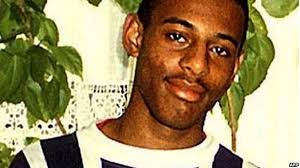The Essential Role of a Peacemaker in Today’s World

Introduction
In an increasingly fractured world, the role of a peacemaker has never been more crucial. Dating back to ancient times, peacemakers have been essential in resolving conflicts and fostering dialogue between differing parties. As geopolitical tensions rise and social upheavals become commonplace, the importance and relevance of peacemakers remain a focal point in efforts to achieve lasting harmony.
The Role of Peacemakers
Peacemakers are individuals or groups that actively work to resolve disputes and promote peace in conflict zones. They engage in mediation and diplomatic efforts, striving to develop consensus among opposing sides. Notable peacemakers, such as Mahatma Gandhi, Martin Luther King Jr., and Nelson Mandela, exemplify the transformative power of non-violent action and dialogue in conflict resolution.
Recent Developments
In recent months, the world has witnessed several instances underscoring the necessity of peacemaking efforts. The ongoing conflict in Ukraine has drawn international attention, with various leaders and organizations advocating for peace talks between Ukraine and Russia. The United Nations has been actively involved in facilitating dialogue, showcasing the role of institutional peacemakers in high-stakes geopolitical conflicts.
Furthermore, community-based peacemakers are gaining recognition in managing local conflicts. They employ grassroots strategies to address issues such as ethnic tensions and resource disputes. For instance, in regions facing violence in the Middle East, local peacemakers work on initiatives that foster coexistence and understanding among diverse communities.
The Impact of Peacemaking Efforts
The influence of peacemakers often extends beyond immediate conflict resolution, impacting broader social dynamics. By addressing the root causes of conflict, peacemakers can help develop frameworks that lead to sustainable peace. Educational programs that promote tolerance and understanding play a significant role in this process, equipping future generations with the tools to resolve conflicts without violence. Recent studies indicate that nations with active peacemaking initiatives tend to experience decreased levels of violence and improved social cohesion.
Conclusion
As we navigate an increasingly complex global landscape, the role of the peacemaker continues to evolve but remains vital. The significance of their work resonates on both local and international levels, demonstrating that peace is achievable through dialogue and understanding. The future of global harmony hinges on the success of peacemaking efforts and the commitment of individuals and organisations to uphold the principles of reconciliation. Without doubt, the contributions of peacemakers will remain indispensable in shaping a more peaceful world.








